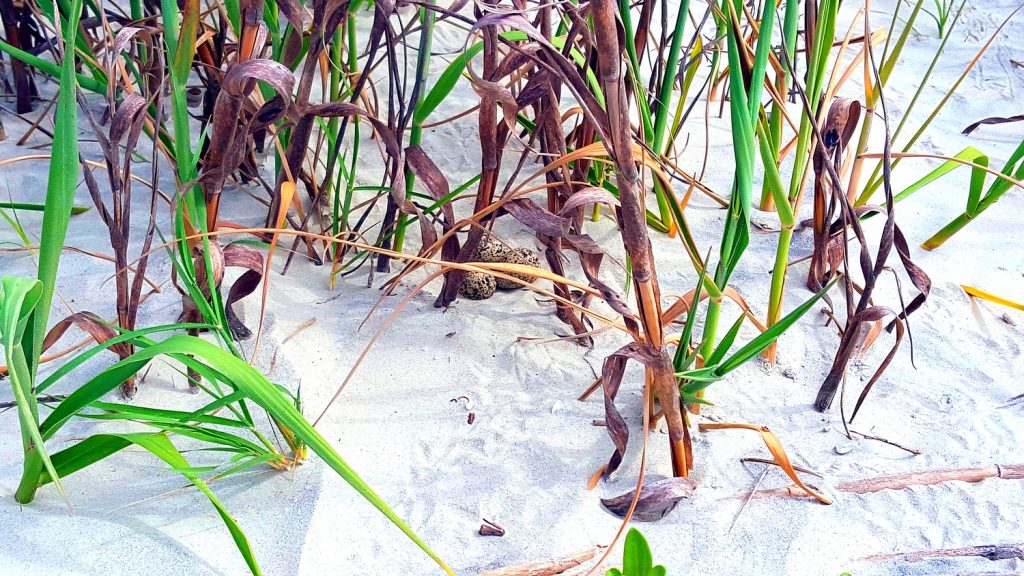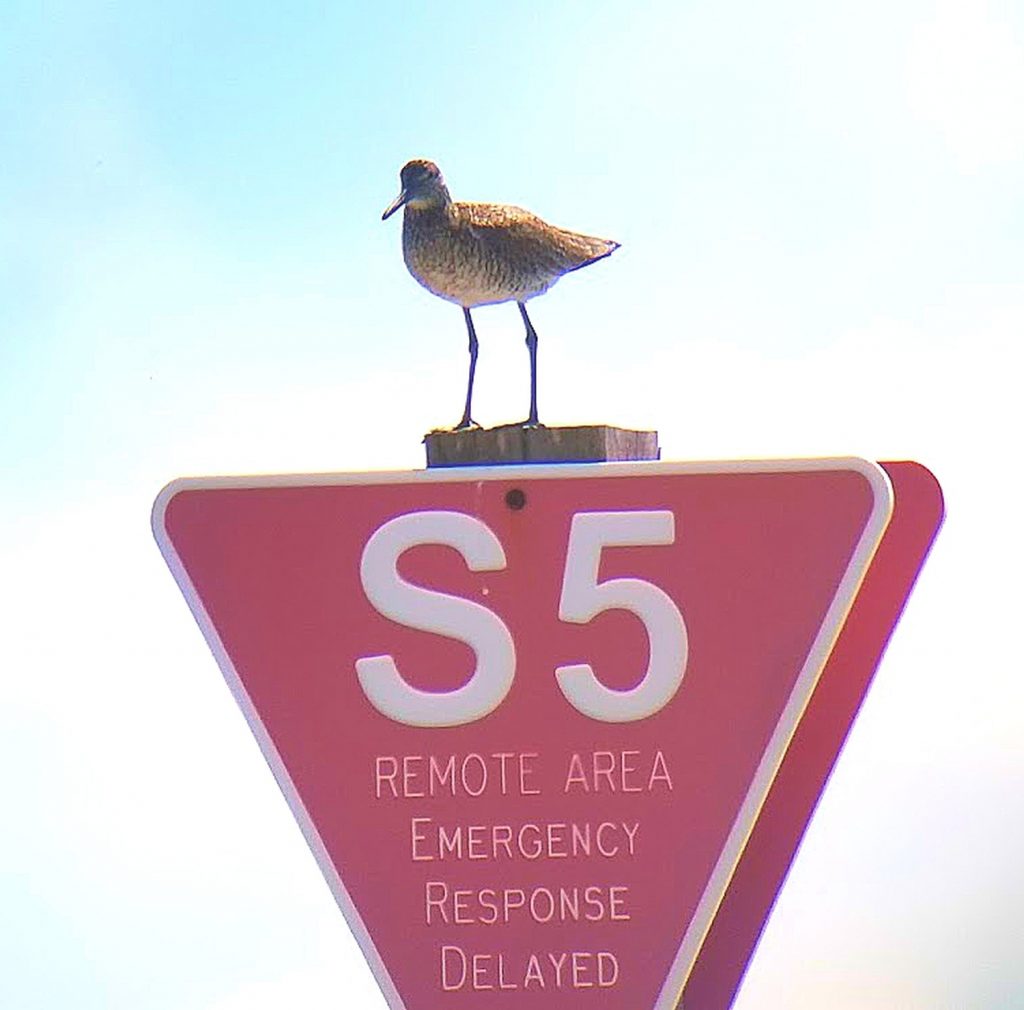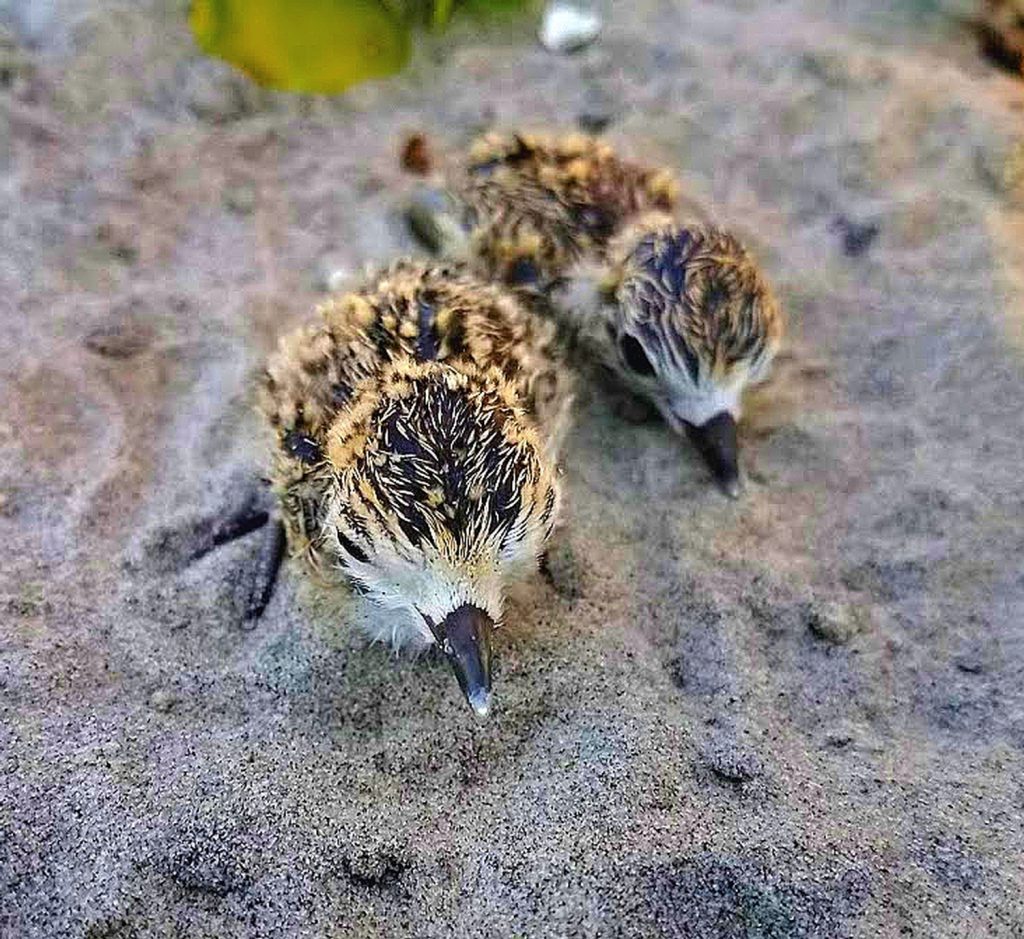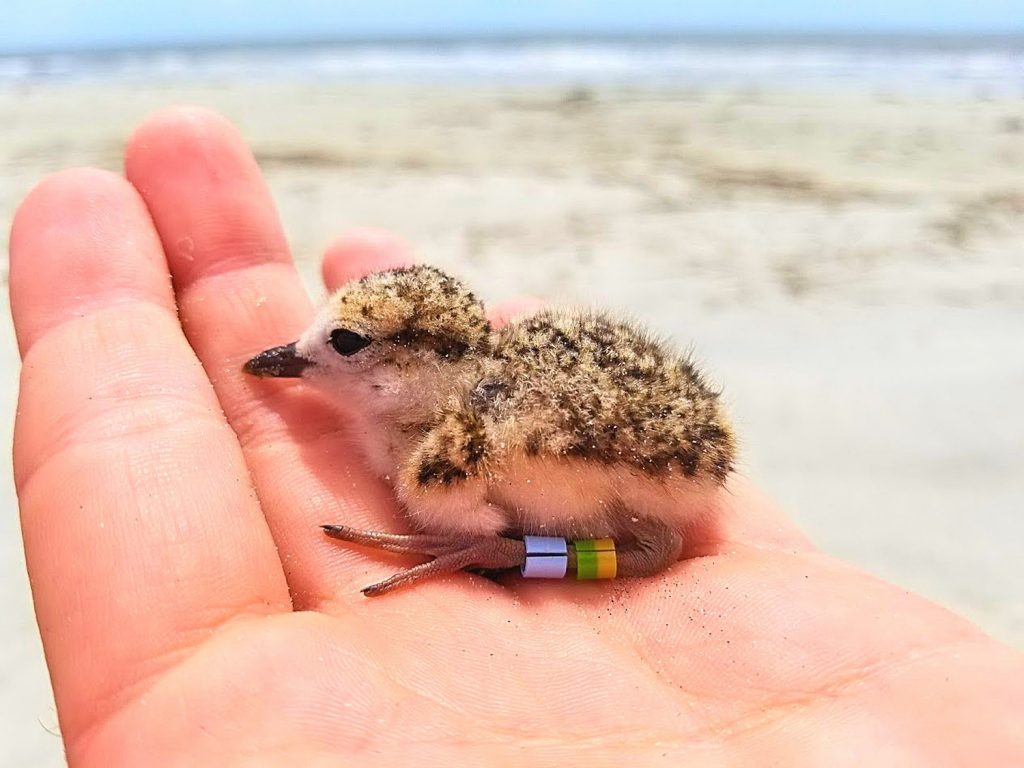Wilson’s Plover End of Season Report 2017
CONSERVATION – Disney Conservation Fund
By Yank Moore, JIA Conservation Land Manager
With the 2017 nesting season behind us, Jekyll Island’s Wilson’s Plovers have migrated away from our beautiful beaches. We send with them our hope that they will return next year in late spring to nest again. This season the JIA Conservation Staff identified a Jekyll-record 17 Wilson’s Plover nests with another record of 4 Willet nests. Eleven plover nests survived predators and other challenges to make it to hatching, as did a single Willet nest – the first documented willet hatch since we began this study a few years ago. This year the adult pairs seemed to take advantage of the more expansive open-dune habitat that resulted from the high tides around Hurricane Matthew last Fall. Low rolling dunes with sparse vegetation are the ideal habitat for nesting Wilson’s Plovers, providing shelter and cover to hide from predators but plenty of space to see them coming, and close proximity to the water’s edge where plovers feed. Only four plover nests fell victim to predators this year, with one predation by a raccoon, surprisingly the first we’ve documented. Two nests were abandoned after being buried in rapidly growing sand dunes, a sign of shoreline recovery following Hurricane Matthew.
Out of all the nests, we were able to band 15 chicks. The bands provide a unique color combination that allows us to specifically identify each individual chick. At least five chicks made it to fledgling size (when they are able to fly for the first time) and will hopefully make it to adulthood and return to the area to nest in the coming years. With enduring help from the Jekyll Island Foundation, we will continue to monitor our small nesting population again next year, hoping for another record breaking year on Jekyll. Always remember, if you enjoy Jekyll’s beach with your dog (or cat!), never allow them to chase birds, keep them on a leash, and respect the “no pets” area on the south end of the island. These rules are in place to keep Jekyll’s beach a haven for birds like the Wilson’s Plovers that may one day be lost if not for our careful stewardship.





